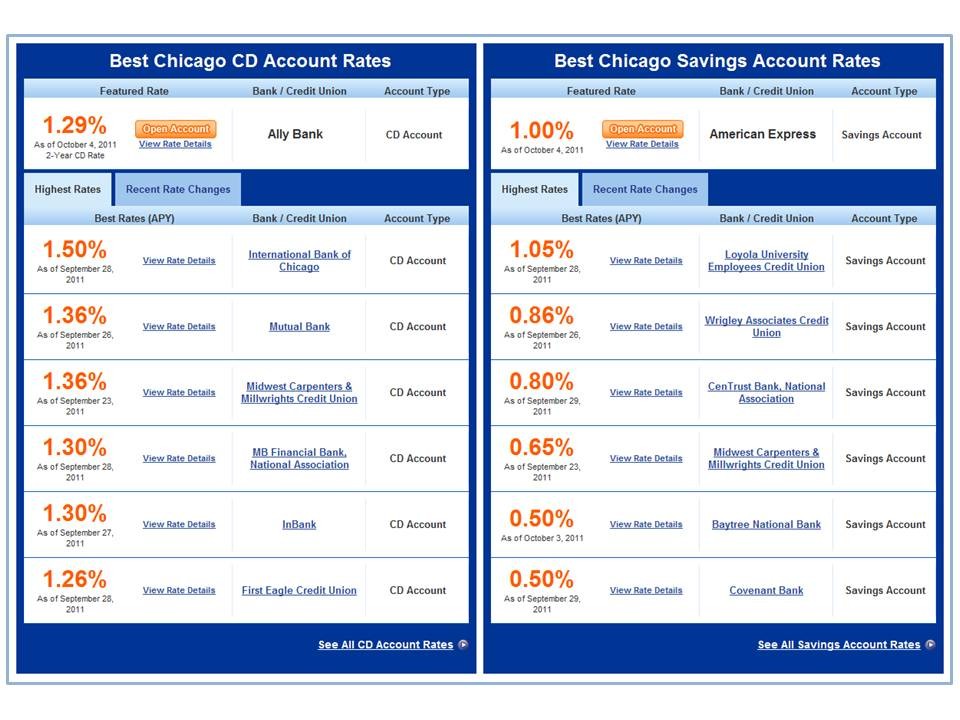Compare Highest CD Rates (Certificate of Deposit)
Post on: 24 Май, 2015 No Comment

0.48% -0.02%
Frequently Asked Questions
What is a Certificate of Deposit?
A certificate of deposit (CD) is a type of low-risk savings account that pays out interest in addition to the principal at maturity. It is a short- to long-term investment and fully insured by the FDIC for up to $250,000.
When investing in a CD, clients agree to leave their money in the bank for a specific period of time. In return, the bank pays out an interest rate typically higher than for a regular savings account. Banks usually impose a penalty for CD withdrawals made before the end of the term.
What are the requirements for opening a CD?
After providing proper identification, you need to consider how much money you would like to lock up and for how long. Most CDs with higher rates require larger minimum deposits. Also, if you already have an account with the bank, it may offer you better rates and terms on the agreement.
How does a CD work?
Most banks will not allow you to touch either the principal or the interest until maturity. The interest will be compounded depending on the terms, which means it will be added to the principal and earn interest on itself.
At the end of the term, the CD reaches maturity at which point you have two options: renew the CD or take out the money. Banks will let you know before your CD matures, so if you choose not to respond with instructions, they will automatically renew the CD for the same term, usually 10 – 15 days after expiration.
How do I choose the right CD?
Choosing the right CD for you is all about deciding how much money you can afford to lock up. High principals usually result in higher rates, but that does not mean you should deposit as much as possible. You want to keep some funds liquid.
There are many different types of CDs, but the most common is a traditional CD. It typically has a minimum requirement of anywhere from $1,000 to $10,000 and earns a fixed interest rate higher than a savings account.
Why choose a CD over a savings account?
For a CD, in exchange for receiving a slightly higher interest rate, you agree that you cannot touch your money for a predetermined amount of time. If you are hesitant to commit, try comparing rates through savings and CD calculators. Having exact numbers will give you a clearer picture on what your money will look like in the long run. It might turn out that a CD is currently not right for your financial situation.
Are there fees associated with CDs?
The most important thing you need to keep in mind is the early withdrawal fee. Since you decided not to touch your money, you will be heavily penalized if you need it earlier than the end of term. Depending on the bank, this fee will usually equate to the interest earned over a specific period of time.














